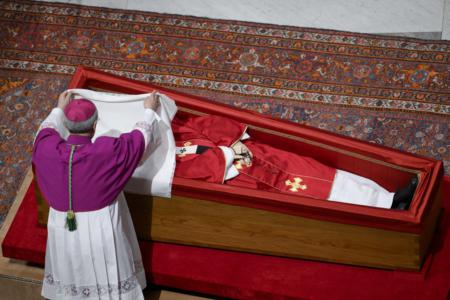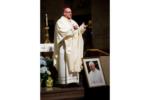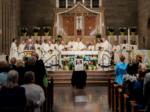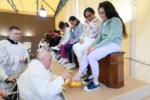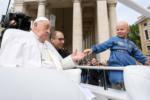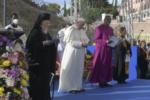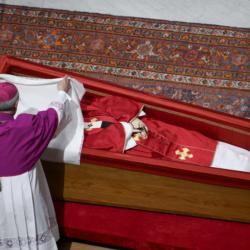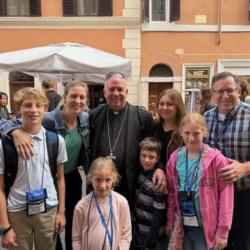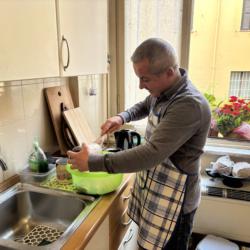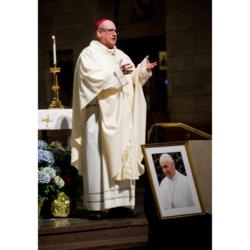The 'month of the dead' brings its own strange refreshment
Those of us who have experienced the death of a loved one, even if we believe that she or he has gone to a better place, still find ourselves struggling with the parting. It's hard to let go. Sometimes it's made a little easier if we have been present for someone's last days, and at the moment of their death, when we experience the whole strange (and often quite beautiful) mystery of living and dying being played out before our very eyes.
Still, parting is, as Shakespeare wrote, "such sweet sorrow."
In November, death seems uniquely before us Catholics. The month begins with the great memorial of our saints, followed the next day by the commemoration of all who have passed from this life before us.
And then the nights grow longer, and the winds come. The familiar and warm rustle of leaves diminishes and is replaced with the dry-bones clickety-click of bare branches. It all helps us to remember, and keenly, that "we have no lasting city" (Heb 13:14). At least not one here, on earth.
Thanks be to God that we Christians know physical death is not an end to our lives, but a portal to what St. Paul calls "the city that is yet to come."
The Gospels are an invitation to us to believe fully in the glory and power of God; to hand ourselves over in all things; to put our doubts and fears themselves to death!
Think of the emotion expressed in the 11th chapter of the Gospel of John, when Lazarus, Jesus' close friend, has died. His sisters are devastated, and their heartache moves the Lord to tears. Jesus reaches into the situation. He touches the air all around it -- a word through the Word -- and transforms it. Death to life. The Messiah has revealed the glory and power of God, for whom all things are possible.
The focus of our good prayer this month is not directly on us, but on those who have gone before -- our ancestors of genetic and spiritual oneness. It is a venerable tradition for us, as people of faith, to remember those whom we have had to let go: grandparents, parents, siblings, relatives and friends, and those whom we have come to know, love and pray with, within the great "cloud of witnesses."
Time can soften our griefs, but our attachments remain, until we too must be mourned and then released.
And yet -- never forget this! -- we who have been baptized into Christ's death live with a substantial hope; one that does not disappoint. As the book of Wisdom teaches, our hope is "full of immortality" (Wis 3:4).
That hope helps us to wonder at the depths of pain, grief and confusion that death can bring us to, until we begin to perceive the mysterious "rest of the story." That we are standing and grieving and growing and necessarily carrying on with our lives, while encountering a place of transition, a sacred passage -- a gate through which we know with certitude we too must pass -- into what Christ Jesus proved to us through his resurrection: the reality of eternal life.
"Baptized into his death ... we were buried therefore with him," St. Paul preached to the Romans (Rom 6: 3-4), "so that as Christ was raised from the dead ... we too might walk in the newness of life."
That's a refreshing concept, isn't it? "The newness of life" encourages us to embrace all seasons of our time here and to open our minds, hearts and souls to Christ in everything that comes to us, because in all of it -- the joyful and the painful and the uncertain -- a kind of newness of life is revealed.
Things change; they do not end. And isn't that a wonderful thing to contemplate, as we approach the close of another liturgical year, and look forward to the deep expectation of Advent?
- Bishop Robert Reed is an auxiliary bishop of the Archdiocese of Boston, pastor of Sacred Heart/St. Patrick Church in Watertown and president of the CatholicTV network.
